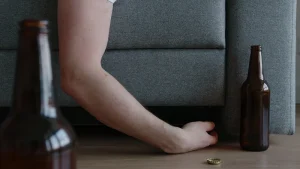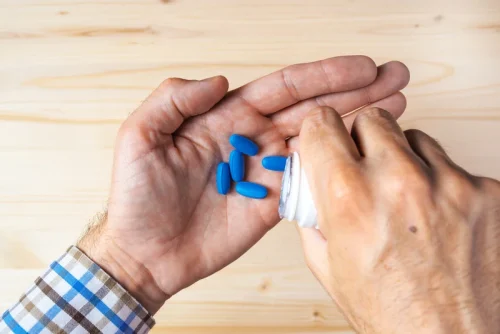Alcoholic Neuropathy: Can Alcohol Nerve Damage Be Cured?

Erectile dysfunction is very common and so are the misconceptions surrounding it. For instance, erectile dysfunction is not necessarily a result of aging and is often the result of an underlying physical health problem. Many diseases can cause blood flow problems, damage nerves, arteries and muscles, which can impair erectile function. Reframe supports you in reducing alcohol consumption and enhancing your well-being.
Personalized Medicine
The National Institute on Drug Abuse explains that addiction and alcoholism cannot be cured. However, like other chronic diseases, addiction can be managed successfully. Treatment allows individuals to counteract addiction’s powerful disruptive effects on their brain and behavior and retake control over their lives. Many people wonder why some individuals can use alcohol without problems but others cannot. Scientists have found that having an alcoholic family member makes it more likely that if you choose to drink you too may develop alcoholism. In fact, scientists now believe that certain factors in a person’s environment influence whether a person with a genetic risk for alcoholism ever develops the disease.
Gout, a painful form of arthritis, is on the rise. Avoiding red meat and alcohol can help.
Managing both alcohol consumption and blood sugar levels is crucial for individuals with both alcoholism and diabetes to prevent further nerve damage. Once a person becomes sober, other conditions and issues may become apparent. People often turn to alcohol or drugs to help them cope with anxiety, depression, abuse, and other problems. While in treatment for alcohol addiction, people can get help with other conditions and problems, as well.
Alcoholics anonymous and other support groups
Stopping alcohol consumption immediately is crucial for preventing additional nerve damage. Continued alcohol use exacerbates the condition, leading to further deterioration of nerve health. By halting alcohol intake, individuals prevent the progression of alcoholic neuropathy and give their nerves a chance to heal. Alcoholism can alcoholism be cured is considered incurable, but that does not mean that people who have it cannot quit drinking. Following the initial treatment phase, alcoholics are encouraged to continue their participation in therapy and support groups. This helps them manage their urges to drink, as well as any problems that trigger the urges.

However, just as those with chronic conditions such as asthma or rheumatoid arthritis may have flare-ups of the disease throughout their life, for some alcoholics, relapse is part of the process. If a relapse occurs, it’s important to remember that this is not a sign of failure, but a blip on the road to lifelong sobriety. It may signify that your course of treatment needs to change for the time being, but that is something you should always discuss with your healthcare provider and/or therapist inflatable obstacle course.
- In general, people who were assigned male at birth (AMAB) can tolerate more alcohol than those who were assigned female at birth (AFAB).
- Although there is no absolute “cure” for alcoholism, we are able to recover from the hopeless state of body and mind that has resulted from the disease.
- The mental challenge of this stage is not to let anything make you feel defeated.

This process, however, can bring about the unpleasant and potentially serious symptoms of alcohol withdrawal syndrome. These include increased heart rate, sweating, anxiety, tremors, nausea and vomiting, heart palpitations, and insomnia. In more severe cases, people may also have seizures or hallucinations. People with severe or moderate alcohol use disorder who suddenly stop drinking could develop delirium tremens (DT). It can be life-threatening, causing serious medical issues like seizures and hallucinations that require immediate medical care.

Post-acute withdrawal
It’s often at the center of social situations and closely linked to celebrations and enjoyment. People who have AUD may continue to use alcohol even though they know it is causing social, health, economic, and possibly even legal problems in their life. Some people recover from AUD the first time they seek treatment, while others may require several treatment attempts.
Some livers may bear permanent scarring, but as long as you stay abstinent from alcohol, there won’t be ongoing damage. Chronic, heavy alcohol use, or alcohol use disorder, can overload your liver with fat and toxins to process. When your liver can no longer keep up, these toxins and fat build up and begin to injure the liver. This is your body’s way of attempting to heal and ward off further injury. The body’s inflammatory reaction to alcohol causes significant discomfort, while oxidative stress – an imbalance between free radicals and antioxidants – contributes to headaches and other symptoms. As a result, simply drinking water won’t combat these underlying causes of hangovers.

These symptoms impact the quality of life and may require specialized treatments to manage. Alcoholic neuropathy and diabetic neuropathy are both forms of peripheral neuropathy but have different underlying causes. Alcoholic neuropathy results from nerve damage due to chronic alcohol consumption, while diabetic neuropathy is caused by prolonged high blood sugar levels in diabetes. Both conditions manifest similar symptoms such as pain, numbness, and tingling in the extremities. It is possible for an individual to suffer from both conditions simultaneously, which exacerbates symptoms and complicates diagnosis and treatment.
Evaluate the coverage in your health insurance plan to determine how much of the costs your insurance will cover and how much you will have to pay. Ask different programs if they offer sliding-scale fees—some programs may offer lower prices or payment plans for individuals without health insurance. Certain medications have been shown to effectively help people stop or reduce their drinking and avoid a return to drinking.

